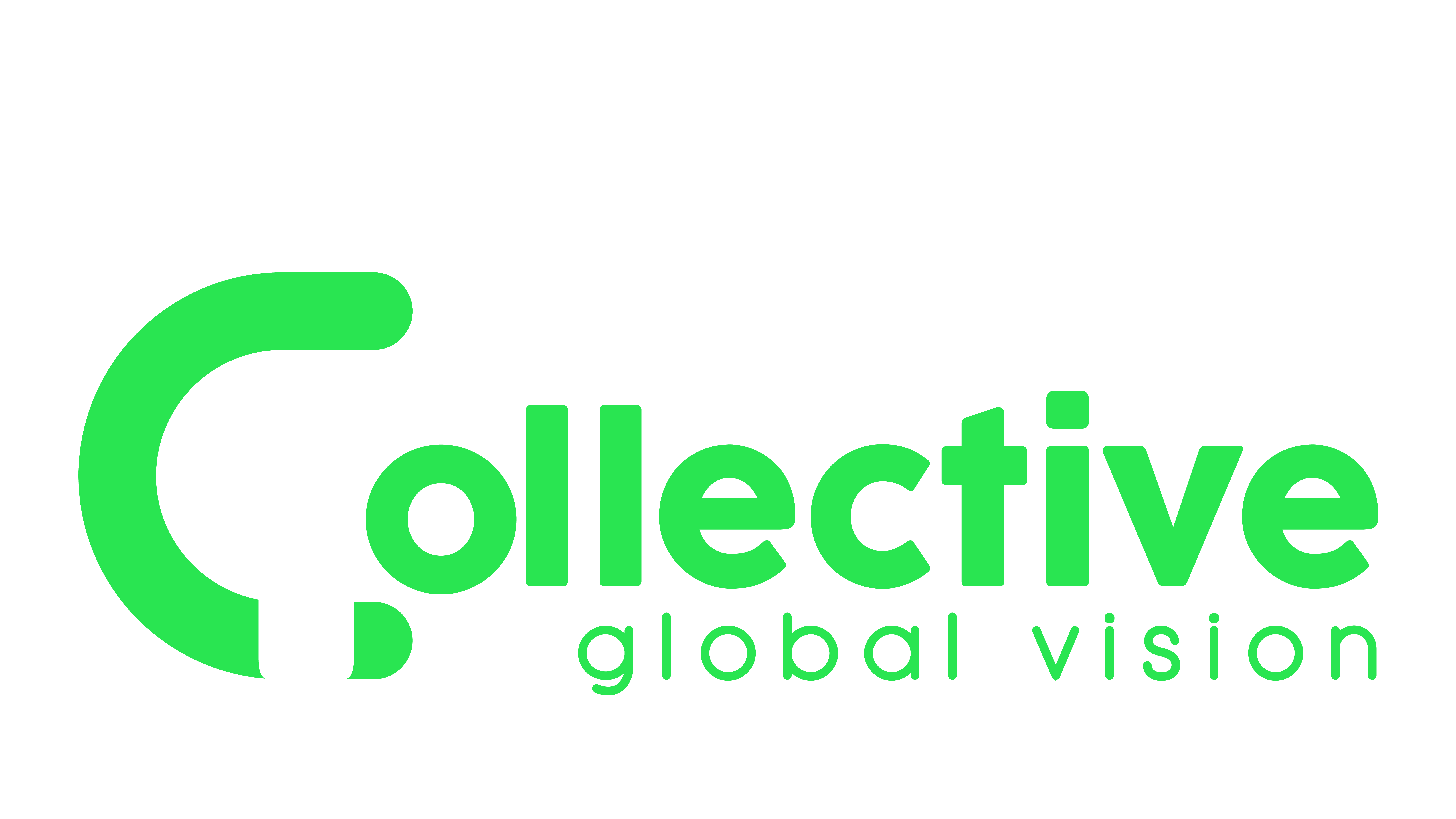Technical Expertise in Music Production
One Year Program
For aspiring music producers who want a well-rounded and practical education in music production.
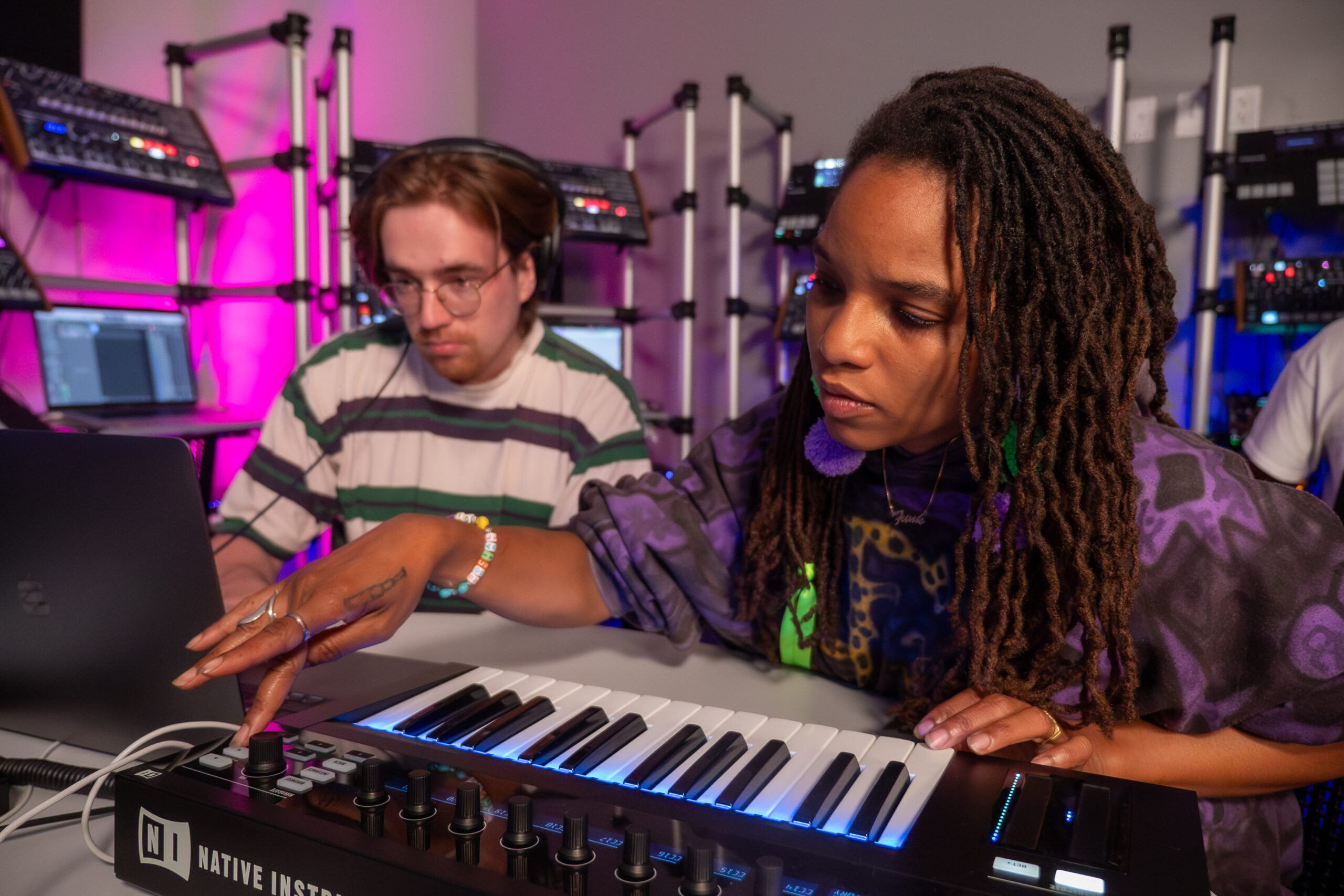
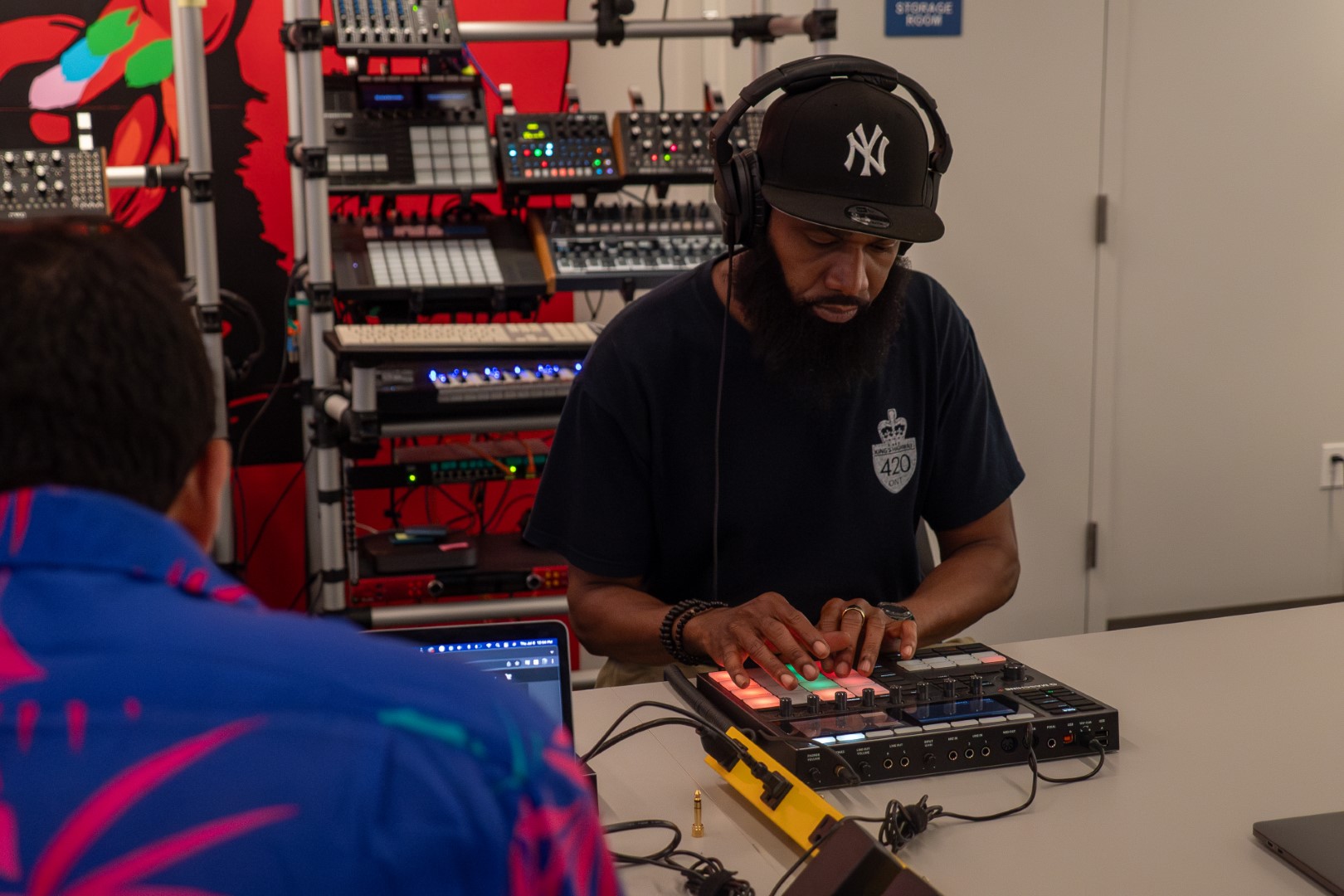
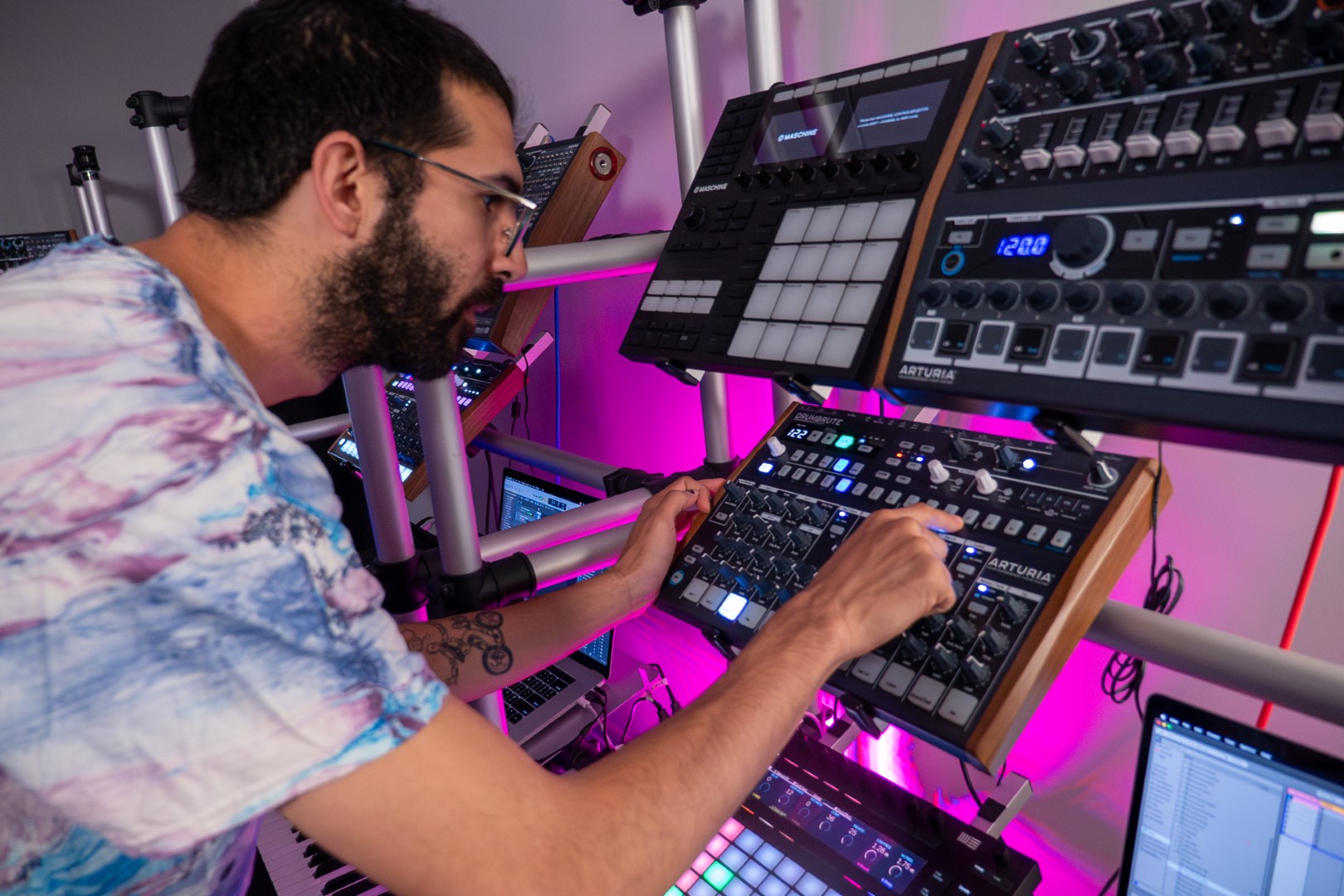
Technical Expertise in Music Production
Prepare for a career as a music producer with technical and artistic expertise at The Collective Global Vision. The Technical Expertise program begins with foundational classes and progresses to our most advanced classes in sound design, mixing, mastering, and music business.
Small Class Environment
Get extra individualized attention from NYC’s top producers and teachers with a 5-to-1 student-to-teacher ratio.
1-on-1 Private Lessons
Your anchor teacher will guide you through your program in weekly mentorship sessions.
Collaborations with Pros
Get in the studio with NYC-based vocalists, instrumentalists, and producers.
Program Cost
$26,250
By the end of your program you will be able to:
Produce using industry-standard DAWs and studio equipment
Learn Ableton Live and Logic Pro
Use innovative and time-tested studio recording techniques
Master digital, analog, and combined signal flows
Effectively apply music theory to your production process
Communicate your ideas to other musicians and work more efficiently
Use advanced sound design, mixing, and mastering techniques
Get inspired by new sounds and put the finishing touches on your tracks
Collaborate and manage projects in the studio
Find your role and become a creative leader
Navigate the music industry
Learn dealmaking, licensing, and current industry trends
Promote your brand
Learn dealmaking, licensing, and current industry trends
1 Year
of well-rounded music education
238 Hours
of guided learning with a music industry professional
Daily
access to the facility and production gear
Weekly
networking and workshop events
Your Curriculum
MUSIC THEORY FOR PRODUCERS: Music Theory for Producers is a hands-on, practical introduction to music theory tailored specifically for music producers and studio engineers. This course demystifies the fundamentals of music theory and shows you how to apply them directly to your work in the studio. Whether you’re creating beats, arranging tracks, or mixing, you’ll learn how to use theory as a creative tool to enhance your productions and streamline your workflow. Through a combination of clear explanations, real-world examples, and hands-on exercises, students will explore the essential elements of music theory—scales, chords, rhythm, melody, and song structure—and see how they function in contemporary music.
PIANO FOR PRODUCERS: Piano for Producers is a hands-on, practical course designed to help music producers and beatmakers develop essential piano skills for music production. Whether creating melodies, programming chords, or arranging tracks, the piano is one of the most powerful tools in a producer’s toolkit. This course focuses on teaching students the fundamentals of piano playing in a way that’s directly applicable to their work in the studio.
Through a combination of clear instruction, practical exercises, and real-world applications, students will learn how to play chords, scales, and melodies on the piano—and how to use these skills to enhance their productions. No prior piano experience is required; this course is designed to meet students where they are and help them build a strong foundation for their creative work.
PRODUCING IN THE DIGITAL AUDIO WORKSTATION I: Producing in the Digital Audio Workstation is an introductory course designed to equip students with the fundamental skills and techniques needed for music production using either Ableton Live or Logic Pro. This course covers essential topics such as navigating the software interface, understanding basic audio and MIDI concepts, and utilizing both DAW’s powerful built-in instruments and effects. Students will learn to create, arrange, and mix their own tracks, exploring various genres and production styles. Through hands-on projects and practical exercises, this course aims to develop both technical proficiency and creative confidence, providing a solid foundation for both producers and musicians.
STUDIO RECORDING I: Explore the fundamentals of multitrack recording techniques and technology in Studio Recording I. This course covers the principles of sound recording, microphone placement, signal flow, and mixing. Students will gain hands-on experience in creating, editing, and mixing multitrack recordings, preparing them for professional audio production environments.
SOUND DESIGN TECHNIQUE I: Sound Design Technique I is an introductory course focused on creating and manipulating sounds using virtual synthesizers, with emphasis on wavetable VSTs like Vital and Serum. Students will explore the core elements of these software instruments, including oscillators, filters, envelopes, LFOs, and modulation matrices. Through hands-on projects, they’ll learn to craft a variety of sounds from scratch, developing skills in designing basses, leads, pads, and textures for electronic music production. By course end, students will have a solid foundation in VST-based sound design, preparing them for more advanced techniques in future studies.
ANCHOR TEACHER PRIVATE LESSONS: Anchor Private Lessons provide personalized, one-on-one instruction designed to complement and enhance the skills learned throughout the program. Whether students are looking to deepen their understanding of a specific topic, catch up on challenging material, or explore advanced concepts, these tailored sessions offer the flexibility to focus on individual needs and goals.
PIANO FOR PRODUCERS II: Piano for Producers II is an intermediate-level course designed to help aspiring producers deepen their piano skills and expand their creative possibilities in music production. Building on the foundational skills learned in Piano for Producers, this course challenges students to explore more advanced techniques, including complex chords, improvisation, and advanced harmony, all while maintaining a strong focus on practical applications in the studio. Through a combination of advanced instruction, hands-on exercises, and real-world projects, students will refine their piano playing and learn how to use these skills to create richer, more dynamic tracks.
PRODUCING IN THE DIGITAL AUDIO WORKSTATION II: Building upon the foundational skills acquired in Producing in the Digital Audio Workstation I, this intermediate course delves deeper into the intricacies of music production using Ableton Live or Logic Pro. Students will explore advanced techniques in sound design, complex routing and signal flow, advanced MIDI programming, and sophisticated mixing and mastering processes. The course emphasizes the development of a unique production style through in-depth study of genre-specific techniques, advanced sound manipulation, and creative use of plugins and external hardware. Students will engage in collaborative projects, analyze professional productions, and refine their skills in arrangement and composition.
STUDIO RECORDING II: This advanced course focuses on capturing high-quality recordings of various instruments in a professional studio environment. Students will learn to select and utilize appropriate microphones, preamps, compressors, and equalizers to achieve optimal sound for different instruments and genres. The course covers advanced techniques for recording drums, guitars, bass, vocals, and acoustic instruments, with emphasis on signal chain optimization and creative use of analog hardware. Students will gain hands-on experience with outboard equipment, learning how to integrate these tools with digital workflows . Topics include parallel compression, hardware summing, and tape saturation techniques. Students will develop critical listening skills and learn to make informed decisions about equipment selection and signal processing to achieve professional-grade recordings.
SOUND DESIGN TECHNIQUE II: Sound Design Technique II builds upon the foundation laid in Sound Design Technique I, advancing students’ skills in VST-based sound design while introducing hardware synthesizers. The course begins by exploring advanced techniques in wavetable synthesizers, including complex modulation, granular synthesis, and sound layering. As the course progresses, students transition to hardware synthesizers, learning the nuances of analog and digital hardware instruments. They’ll compare and contrast software and hardware workflows, explore the basics of sound design on physical synthesizers, and learn to integrate both into their production process.
MIX ENGINEERING: Mix Engineering is a comprehensive course that equips students with the skills and knowledge necessary to create professional-quality audio mixes. Bridging theory with hands-on practice, this course covers advanced techniques in balancing, equalization, dynamics processing, and spatial effects using industry-standard equipment and software. Students will develop critical listening skills, learn mix analysis, and master problem-solving strategies for common mixing challenges. The curriculum emphasizes both technical proficiency and creative decision-making, teaching students to enhance the emotional impact of music through mixing. Through practical assignments and real-world projects, students will explore mix architecture, signal flow optimization, advanced EQ techniques, dynamic range control, creative use of effects, stereo imaging, and mix bus processing.
ANCHOR TEACHER PRIVATE LESSONS: Anchor Private Lessons provide personalized, one-on-one instruction designed to complement and enhance the skills learned throughout the program. Whether students are looking to deepen their understanding of a specific topic, catch up on challenging material, or explore advanced concepts, these tailored sessions offer the flexibility to focus on individual needs and goals.
PRODUCING IN THE DIGITAL AUDIO WORKSTATION III: In this advanced course, students will specialize in one of three genre tracks: House/Techno, Hip Hop, or Popular Music. The curriculum provides deep dives into the production techniques, creative approaches, and industry workflows specific to the chosen genre.
House/Techno Track: Advanced sound design, complex rhythms and grooves, loop-based arrangement, and mixing strategies for powerful, club-ready productions.
Hip Hop Track: Hard-hitting drum programming, sampling techniques, atmospheric sound design, and mixing for a polished, radio-ready aesthetic.
Popular Music Track: Hook-driven songwriting, contemporary sound design, production for vocalists, and commercially viable mixing approaches.
STRUCTURE OF THE MUSIC BUSINESS: This course covers the essential components of the music business, including record labels, music publishing, live performance, artist management, digital distribution, and the impact of technology. Students will delve into the roles and functions of various industry players, analyze real-world case studies, and gain insights from industry professionals. Emphasis is placed on understanding current trends, legal considerations, and strategic career planning, equipping students with the knowledge necessary to navigate the dynamic landscape of the music business.
CRITICAL LISTENING IN THE STUDIO: Critical Listening in the Studio develops students’ aural perception and analytical skills for music production. The course covers frequency recognition and evaluation of mix elements including balance, EQ, and effects. Students learn to identify and articulate characteristics of instruments, production techniques, and mixing styles across popular genres through in-class exercises and listening assignments. By honing their ability to make informed decisions in recording, mixing, and mastering, students prepare to achieve professional-quality results in studio environments.
AUDIO MASTERING: Audio Mastering is an advanced course that builds upon the foundation laid in Mix Engineering, focusing on the crucial final stage of music production. This course delves into the art and science of audio mastering, teaching students how to polish and finalize mixes for commercial release. Students will learn to use specialized mastering tools and techniques to achieve optimal loudness, tonal balance, and stereo imaging across various playback systems and formats. The curriculum covers critical listening in a mastering context, analog and digital signal processing, dynamic range management, mid-side processing, and metadata implementation. Students will also explore the role of mastering in maintaining consistency across an album, addressing specific genre requirements, and preparing audio for different distribution platforms.
ANCHOR TEACHER PRIVATE LESSONS: Anchor Private Lessons provide personalized, one-on-one instruction designed to complement and enhance the skills learned throughout the program. Whether students are looking to deepen their understanding of a specific topic, catch up on challenging material, or explore advanced concepts, these tailored sessions offer the flexibility to focus on individual needs and goals.
1 YEAR FINAL PROJECT: The 1-Year Final Project serves as a capstone experience for students in the Music Production program, providing an opportunity to synthesize and apply the skills they have developed throughout their first year of study. This project requires students to conceive, produce, and present a fully realized single track (or a 2-track project for ambitious students), showcasing their technical proficiency, creativity, and foundational understanding of the music business.
Students will:
- Produce a Polished Track: From initial concept to final master, students will demonstrate their ability to compose, arrange, record, mix, and master a professional-quality track that reflects their unique artistic voice.
- Document the Creative Process: Through written or video documentation, students will articulate their creative vision, technical decisions, and problem-solving strategies, providing insight into their production workflow.
- Develop a Marketing Plan: Students will create a basic marketing plan for their track, including target audience analysis, promotional strategies, and distribution platforms, introducing them to the business side of music production.
Present Their Work: Students will present their project to faculty and peers, explaining their creative and technical process, as well as their marketing approach, in a professional and engaging manner.
